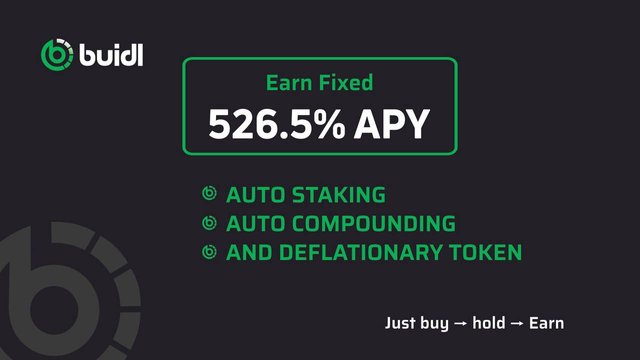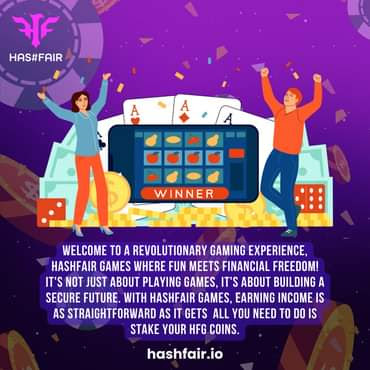
Introduction
In the ever-growing cryptocurrency world, various protocols and platforms have emerged that offer various attractive features to attract investors and users. One of the latest and most eye-catching is the Buidl Auto Staking Protocol (BAP), which offers an annualized return (APY) of up to 526.5%. This figure is very high when compared to many other staking platforms, and is the main attraction for many users who want to maximize their profit potential in the world of DeFi (Decentralized Finance).
In the ever-growing cryptocurrency world, various protocols and platforms have emerged that offer various attractive features to attract investors and users. One of the latest and most eye-catching is the Buidl Auto Staking Protocol (BAP), which offers an annualized return (APY) of up to 526.5%. This figure is very high when compared to many other staking platforms, and is the main attraction for many users who want to maximize their profit potential in the world of DeFi (Decentralized Finance).
What is Buidl Auto Staking Protocol (BAP)?
Buidl Auto Staking Protocol (BAP) is a protocol designed to simplify the staking process by providing very competitive returns. Staking itself is a process in which users lock a number of their cryptocurrency assets in a blockchain network to support the operation and security of the network. In return, they get rewards in the form of additional tokens.
However, what sets BAP apart from many other staking platforms is ease and automation. By using this protocol, users no longer need to manage staking manually, because all processes are done automatically. This reduces the risk of errors and provides more convenience for users.
Why is 526.5% APY So Attractive?
APY (Annual Percentage Yield) is a measure used to describe the potential return that can be obtained from an investment in one year. BAP offers an APY of 526.5%, a figure that is much higher compared to most staking platforms or other investment products.
This high return attracts investors who want to get the most out of their digital assets. However, as with any investment, it is important to understand that high returns usually also come with a higher level of risk. BAP addresses this by using technology and algorithms that are designed to maintain stability and security despite offering high returns.

Bap's Strengths in the DeFi Industry
Buidl Token
Buidl is the native token of Buidl Ecosystem, which automatically receives rebase reward. By simply holding $Buidl token in the wallet, every token holder automatically receives 0.021% interest every 60 minutes.
- Automation: One of the main strengths of BAP is the automation of the staking process. Users do not need to perform manual tasks such as managing staking or calculating rewards, as all these processes are done automatically by the protocol.
- High Return Rate: The APY offered by BAP, which is 526.5%, is one of the highest in the industry. This provides a great incentive for investors to participate in this protocol.
- Security and Transparency: Security is of utmost importance in the cryptocurrency world. BAP uses decentralized and secure blockchain technology, and is transparent in every transaction. Users can monitor the movement of their assets in real-time.
- Market Growth: With the increasing adoption of DeFi, BAP is well-positioned to continue growing. The protocol is designed to support the growth of the larger DeFi ecosystem, giving users the opportunity to get involved in this rapidly growing market.
- Simple and User-Friendly: BAP’s interface is designed to be user-friendly, whether new to cryptocurrency or experienced. The protocol offers easy staking and access to other features without requiring in-depth technical knowledge.
Buidl is the native token of Buidl Ecosystem, which automatically receives rebase reward. By simply holding $Buidl token in the wallet, every token holder automatically receives 0.021% interest every 60 minutes.
Buidl Tokenomics
$BUIDL is a BEP-20 token with an elastic supply that rewards holders using a positive rebase formula. It begins with just 21000 Tokens, that’s is 1000 times lesser than Bitcoin Supply.
$BUIDL is a BEP-20 token with an elastic supply that rewards holders using a positive rebase formula. It begins with just 21000 Tokens, that’s is 1000 times lesser than Bitcoin Supply.
- Initial Supply: 21,000
- Max Supply: 21,000,000
- Presale Tokens: 4410
- Token Price: 0.0021BNB
- Max BNB Per Wallet: 0.21 BNB
- Hard Cap: 9.261 BNB
- Affiliate Bouns: 25% (1 Level)

BUY NOW
https://pancakeswap.finance/?outputCurrency=0xB9512aF37B84fA8D30a210c2FC6Dc78052dc5887
#Buidl #Defi #Staking #Blockchain #Kripto #Ekosistem
Conclusion
Buidl Auto Staking Protocol (BAP) with an APY of 526.5% offers an attractive opportunity for investors looking for high returns with a more automated and efficient process. With its secure technology, attractive returns, and ease of use, BAP has the potential to become a top choice for those interested in maximizing profits in the growing DeFi space.
For More Information
Website : https://buidl.build
Twitter :https://x.com/buidlbsc
TG Group :https://t.me/buidlbsc
TG Channel :https://t.me/buidl_bsc
White Paper: https://buidl-token.gitbook.io/buidl-token
Author
Forum Username: Koyhirosi
Forum Profile Link: https://bitcointalk.org/index.php?action=profile;u=2274495
Telegram Username: @koyhirossi
Post Link: https://bitcointalk.org/index.php?topic=5525929.msg64980765#msg64980765
BSC Wallet Address: 0x416eCc4256BA6C8dA435E5486F5243f4E3eC8BE9
Buidl Auto Staking Protocol (BAP) with an APY of 526.5% offers an attractive opportunity for investors looking for high returns with a more automated and efficient process. With its secure technology, attractive returns, and ease of use, BAP has the potential to become a top choice for those interested in maximizing profits in the growing DeFi space.
For More Information
Website : https://buidl.build
Twitter :https://x.com/buidlbsc
TG Group :https://t.me/buidlbsc
TG Channel :https://t.me/buidl_bsc
White Paper: https://buidl-token.gitbook.io/buidl-token
Author
Forum Username: Koyhirosi
Forum Profile Link: https://bitcointalk.org/index.php?action=profile;u=2274495
Telegram Username: @koyhirossi
Post Link: https://bitcointalk.org/index.php?topic=5525929.msg64980765#msg64980765
BSC Wallet Address: 0x416eCc4256BA6C8dA435E5486F5243f4E3eC8BE9

.jpeg)







